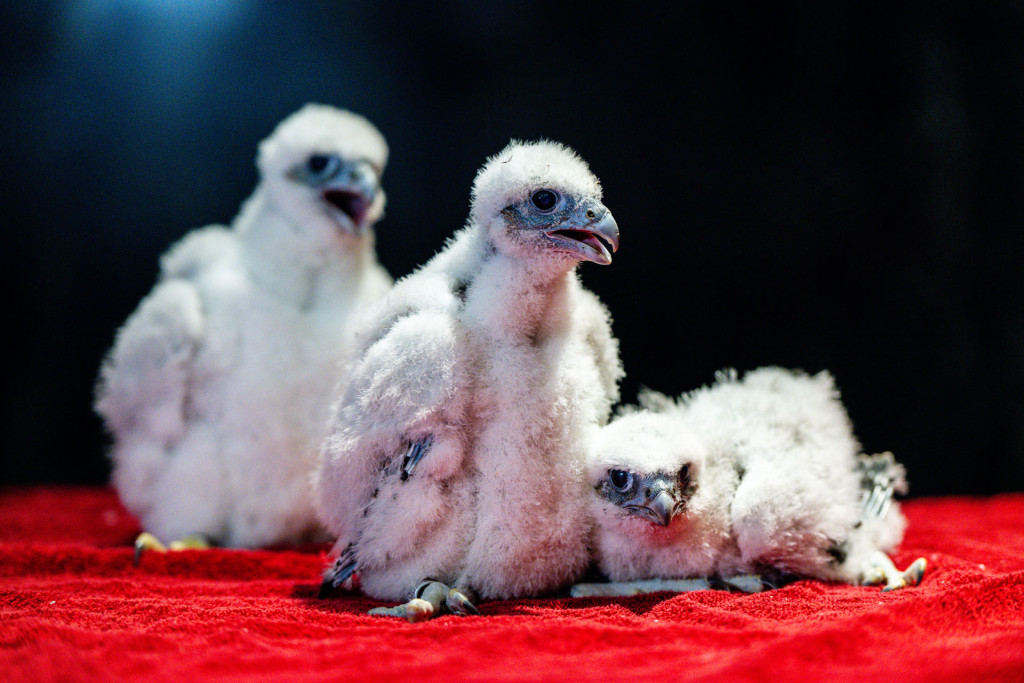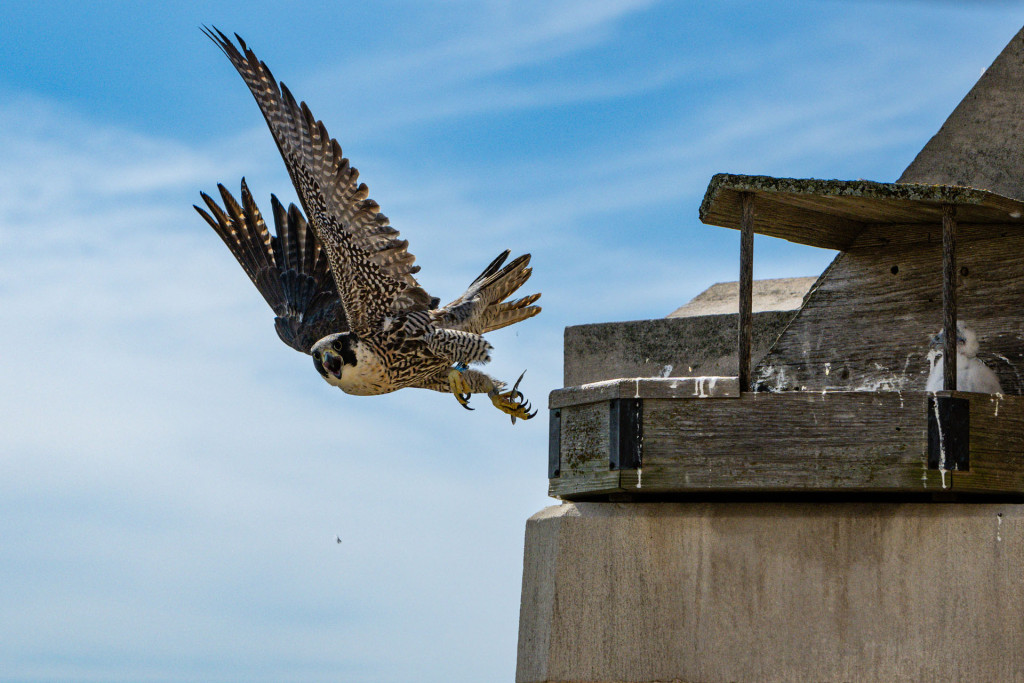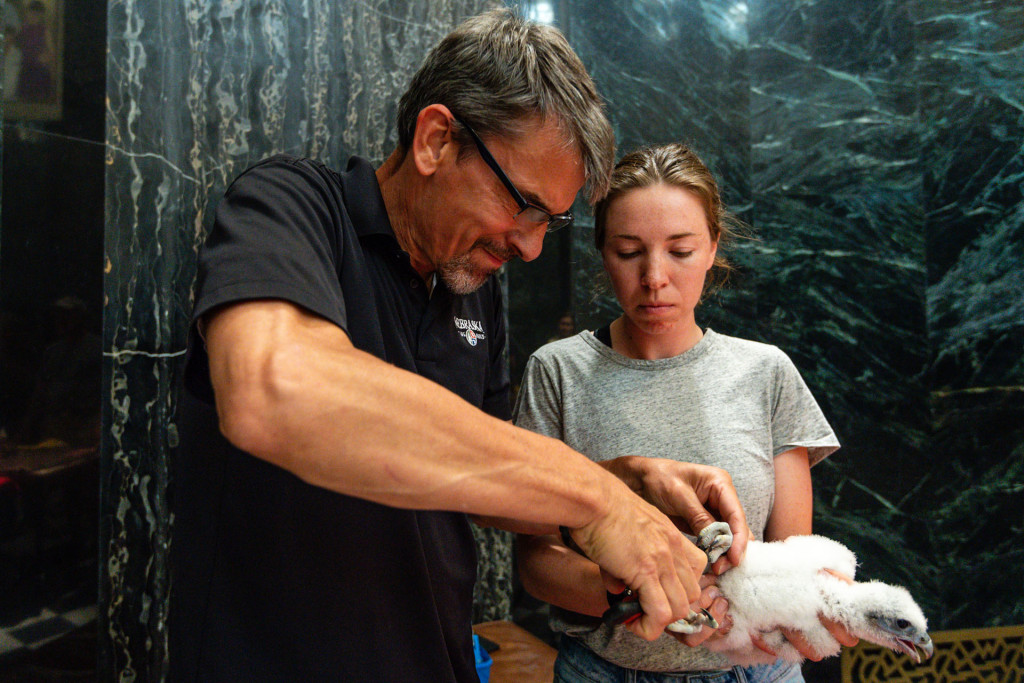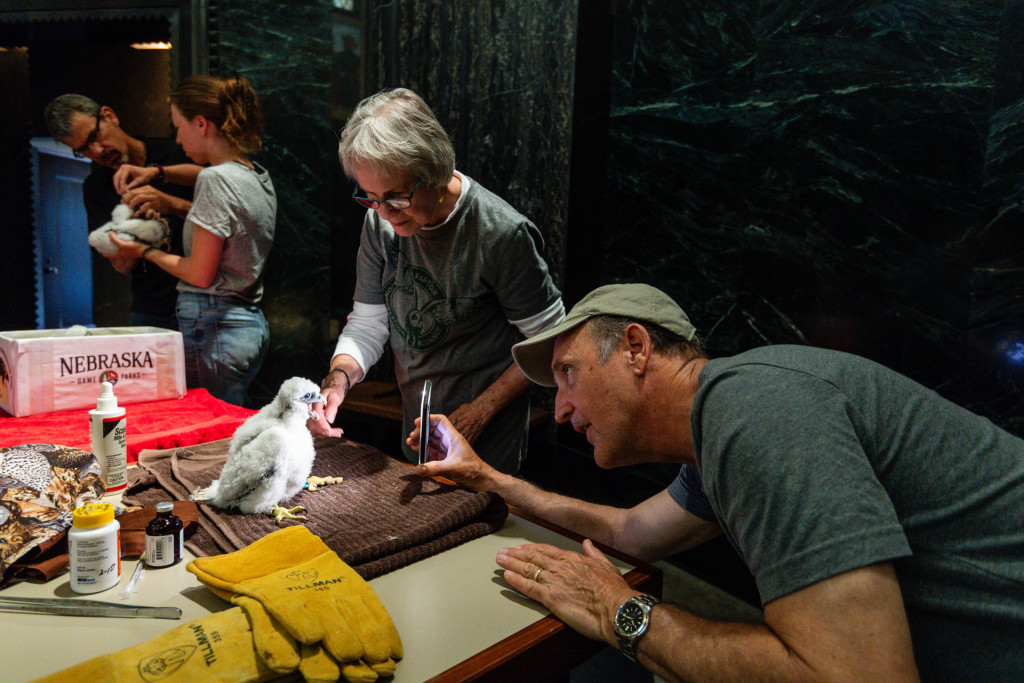
By Renae Blum
Jeanne Hibbert is glowing. It’s the day after three new falcon chicks were banded at the Nebraska State Capitol Building – an event she was invited to attend and livestreamed for her falcon-dedicated Facebook page.
“It was nice to be back, because we hadn’t been there since 2016,” Hibbert said, smiling.
Hibbert has a lot to smile about these days. For the past 12 years, she’s managed a growing Facebook group about the falcons living at the Capitol, posting daily screenshots and video. Things got quiet after the former resident pair, Alley and 19-K, succumbed to old age and injury after living long lives. But now, after eight years, there’s once again a family of chicks at the capitol – and they’re doing great, Hibbert said.
When Hibbert noticed the new couple courting, she was skeptical. The female looked very young.

“I thought they might mate, and I thought they might lay eggs. But I didn’t know if they’d be viable because she was so young,” Hibbert said.
Nevertheless, she kept a close eye on the three eggs. On May 24, at 6:30 a.m., the first egg hatched – and Hibbert was watching.
“I always get up and check the cameras right away, because I record overnight,” Hibbert said. “I was watching, and I was like, ‘Something’s going on.’”
Hibbert got out a magnifying glass as she watched the livestream. Once she realized what was happening, “I was so excited, trying to get a recording and something to post on the site.”

In the end, all three falcons successfully hatched, and the days since have been a flurry of activity for Hibbert. She records both livestream views 24/7 and each evening checks the recordings for interesting moments she can highlight in the Facebook feed.
“I write down all the feedings,” Hibbert said, something she started doing as she wasn’t sure how the new parents would perform. But they’ve been diligent about caring for their family, bringing the chicks something to eat anywhere from six to nine times a day.
The new parents make a great team. Hibbert still remembers the time she saw the female, Atlas, return to find her mate not sitting on the eggs. “She gave him a mouthful,” Hibbert said. “I couldn’t hear it because the cams don’t have sound, but she was yakking at him, and then she left, and he got on those eggs. They have a way to communicate.”

Severe thunderstorms are a worry for Hibbert. “We lost those two in 2014 to that storm overnight. They got blown out. So, every time there’s been a severe thunderstorm warning – I know I can’t do anything, but I stay up with them, and I watch the camera. And then I watch the radar to see how the storm’s doing.” She doesn’t stop until the storm is over.
The chicks are expected to fledge in just a matter of days, and Hibbert and her Facebook group are watching as the chicks test their new abilities, jumping up onto the buttress above the nest. Once they do fledge, Hibbert expects them to initially land “somewhere on the capitol or close by,” she said. “They’re usually pretty safe here. I think that’s one of the reasons we’ve had so many successful offspring.”
Looking farther into the future, Hibbert is hopeful that this new pair, named Jet and Atlas, will continue raising chicks at the capitol.
“[Peregrines] generally mate for life and they try to keep their territory,” she said. “And since this is such a prime spot, it is my belief and my hope that this is our new resident pair.”
Whatever happens, Hibbert – and her Facebook group of over 1,300 members – will be watching.
Visit Hibbert’s Facebook page at Peregrine Falcons Lincoln Ne.
